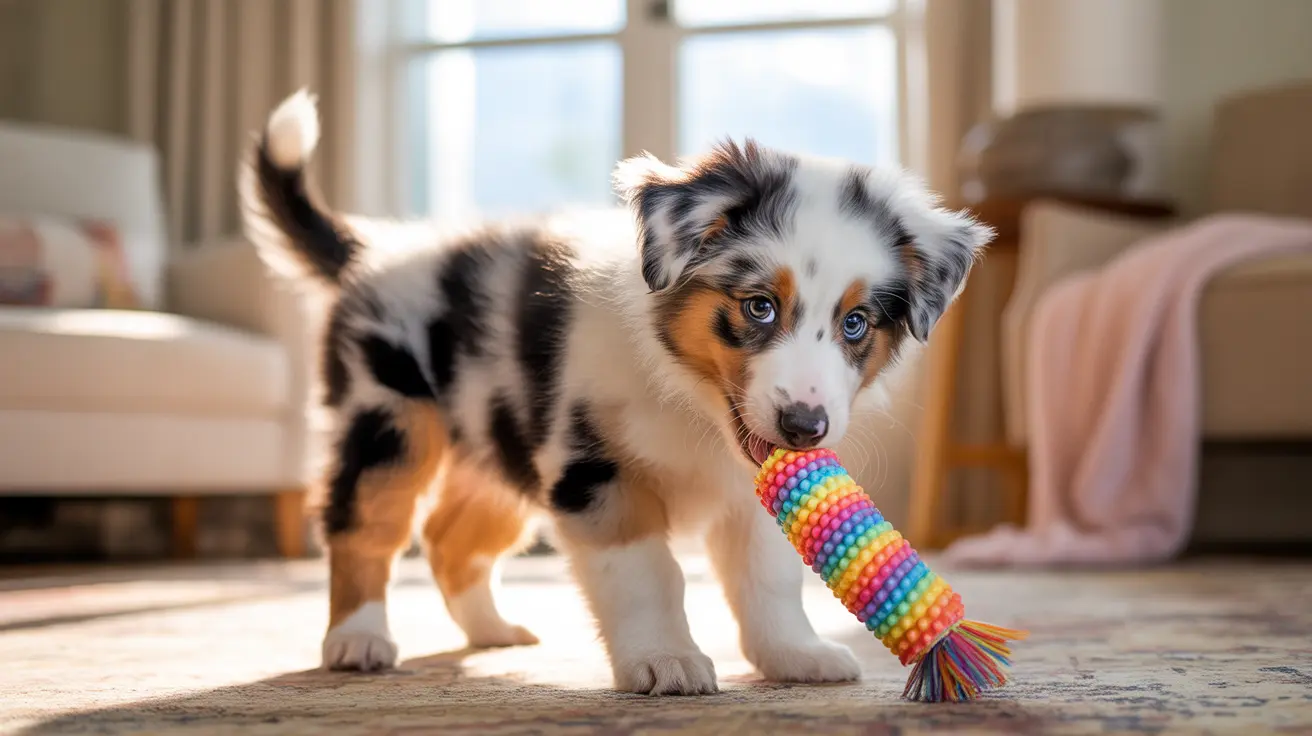Thinking about bringing a furry friend into your life? While the idea of getting a puppy fills most people with joy and excitement, there are countless surprises awaiting new pet parents that rarely make it into the conversation. From unexpected behaviors to significant lifestyle adjustments, being prepared for these hidden realities can make your journey into puppy parenthood much smoother.
In this comprehensive guide, we'll reveal the lesser-known aspects of puppy ownership that experienced dog owners wish they'd known from the start. Whether you're still considering getting a puppy or have already welcomed one home, this insider knowledge will help you navigate the challenges and joys of raising your new four-legged family member.
Surprising Puppy Behaviors You Should Know About
New puppy owners are often caught off guard by behaviors that are completely normal but rarely discussed. For instance, did you know that puppies commonly eat their own feces? This behavior, known as coprophagia, while disturbing to humans, is actually quite normal in the canine world.
Your puppy will also go through an intense biting phase, usually between 8-20 weeks old. During this time, they'll use their mouth to explore everything - including your hands, feet, and furniture. This isn't aggression; it's a natural part of their development and learning process.
The Hidden Costs and Commitments
Beyond the initial purchase price and basic supplies, puppies come with numerous unexpected expenses. Regular veterinary visits, vaccinations, and preventative medications are just the beginning. You'll likely find yourself investing in multiple types of toys, different foods until you find the right one, and possibly replacing damaged household items.
Time commitment is another significant factor that often surprises new owners. Puppies need constant supervision, regular feeding schedules, and consistent training sessions throughout the day. This means adjusting your work schedule, social life, and daily routines to accommodate your new family member's needs.
Health and Safety Considerations That Matter
Many first-time puppy owners don't realize that their new pet can't immediately go for walks or meet other dogs. Puppies need a complete vaccination series before they can safely explore the outside world, which means keeping them relatively isolated for the first few months.
Puppy-proofing your home is also more extensive than most people anticipate. Everything from electrical cords to houseplants needs to be evaluated for safety, as puppies explore their world primarily through their mouths.
The Reality of Training and Socialization
While many envision training their puppy through a few basic commands, the reality is much more complex. Modern positive reinforcement training requires consistency, patience, and understanding that progress isn't linear. Some days will feel like two steps forward, one step back.
Socialization is crucial but often misunderstood. It's not just about meeting other dogs - it's about exposing your puppy to various experiences, surfaces, sounds, and situations during their critical development period (usually before 16 weeks of age).
The Emotional Journey of Puppy Parenthood
The emotional impact of getting a puppy often catches owners by surprise. Many experience what's known as the "puppy blues" - feelings of overwhelm, anxiety, and even regret during the first few weeks or months. These feelings are normal and usually temporary as you adjust to your new reality.
The bond with your puppy won't necessarily be instant. Like any relationship, it takes time to develop trust and understanding. However, the connection that eventually forms is often deeper and more rewarding than many owners anticipate.
Frequently Asked Questions
What are some common behaviors that new puppy owners often find surprising?
Common surprising behaviors include eating feces, excessive mouthing and biting during teething, sleeping in strange positions, and being more active at dawn and dusk. Many puppies also go through a fear period where they become temporarily scared of familiar objects.
How do I effectively toilet train my puppy without feeling overwhelmed?
Establish a strict routine with frequent bathroom breaks (every 1-2 hours initially), use positive reinforcement for successful outdoor elimination, and maintain consistency with feeding schedules. Remember that accidents are normal and part of the learning process.
Why do puppies chew on everything, and how can I redirect this behavior?
Puppies chew to explore their world and relieve teething discomfort. Redirect this natural behavior by providing appropriate chew toys, puppy-proofing your home, and supervising your puppy closely. Freeze toys or use puzzle feeders to keep them mentally stimulated.
How can I prepare my lifestyle for the significant changes that come with having a puppy?
Plan for regular breaks in your day for potty trips and exercise, arrange for pet care if you work long hours, and expect to spend less time socializing initially. Create a dedicated puppy space in your home and establish a consistent routine before your puppy arrives.
What are the most important health considerations for newborn puppies before they are fully vaccinated?
Keep puppies away from unvaccinated dogs and high-traffic areas until their vaccination series is complete. Maintain a clean environment, watch for signs of illness, and schedule regular veterinary check-ups. Proper nutrition and deworming are also crucial during this period.
Understanding these often-overlooked aspects of puppy ownership will help you prepare for the journey ahead. While challenges are inevitable, the joy and companionship a puppy brings to your life make it all worthwhile. Remember, every experienced dog owner started exactly where you are now, and with patience, dedication, and love, you'll navigate this new chapter successfully.






